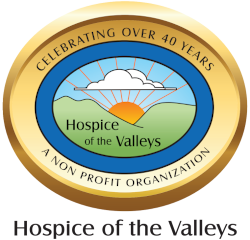End of Life Planning
We’ve all heard stories of bereaved relatives, surprised by a strange Last Will and Testament scribbled on a sheet of notebook paper, tucked into a random drawer somewhere in the house. Over the years, these stories surface to amuse us (due to the lack of planning and surprise of relatives who discover they have inherited small fortunes) or to warn us (in the case of contested estates that are hung up in court for years).
There is really no need to neglect these aspects of estate planning. It’s easy enough to meet up with an attorney, discuss your wishes, and draw up the appropriate legal documents. Doing so will give you peace of mind, knowing that your assets will be distributed according to your wishes. You might also be comforted to know that your loved ones will avoid a long, difficult legal ordeal.
One of the first decisions you will make, with regard to estate planning, is whether to establish a Will or a Trust. The primary difference between the two is that a Will takes effect upon your death, while a Trust begins on the day you create it.
With a Will, you leave directions for the distribution of assets after your death. For example, you might want to leave your bank accounts to your spouse, your beach house to the children, and various items to friends or other relatives. After your death, these assets will be distributed as directed. You might also wish to leave instructions for your burial, designate guardianship for children or pets, and state other final wishes.
A Trust, on the other hand, can be used to distribute property before your death, after death, or at some other point in the future. A trustee (a bank, law firm, or other organization) holds legal title to property placed in the trust. The beneficiaries of your choosing can receive income from that trust, or the entirety of the property at a time of your choosing.
So should you choose a Will or a Trust? That depends upon many factors, but consider this: A Will passes through probate, with a court ensuring that the Will is valid, and then overseeing the administration of the document. A Trust is not subject to the probate process, so your assets can pass directly to heirs while bypassing the complicated, difficult court procedures. A Trust can also be kept private, whereas everything that passes through probate court will be part of public records.
Wills and Trusts each come with distinct advantages and disadvantages, and there is no single solution that is right for everyone. Discuss your needs and concerns with an estate planning attorney, and he or she can help guide you toward the legal process that suits your situation.
Join us on March 15th at the Temecula Valley Hospital from 6-8pm for a screening of the PBS Frontline Documentary “Being Mortal”. This documentary is based on the end of life experiences of several patients and addresses the importance of talking about end-of-life care goals with your family and medical providers.
Following the film we will have a Q&A session led by Laurence Boggeln, Chief of Staff of Temecula Valley Hospital and Leslee B. Cochrane, MD., Executive Medical Director for Hospice of the Valleys who will be available to interact with the audience and answer questions. During the event we will also be distributing a complimentary copy of “Five Wishes” to attendees. “Five Wishes” is a living will, valid under California state law that talks about your personal, emotional and spiritual needs, as well as your medical wishes. The do-it-yourself format is simple and easy to use and enables you to complete your Health Care Directive in the privacy of your own home
For more information please visit Hospice of the Valleys’ website at www.HospiceoftheValleys.org for future screenings.
Establishing a Power of Attorney can be a confusing process, but creating this legal document is essential to ensure that your future medical care will fall in line with your wishes. Once you have chosen a trusted relative or friend to entrust with your future decisions, you might be wondering exactly what this person will and will not be doing.
Two Types of Power of Attorney
First, it’s important to understand that there are two types of Power of Attorney. A healthcare Power of Attorney is able to make medical decisions for you, in the event that you are ever unable to do so yourself. This person should be educated on your wishes regarding various types of medical treatment and life-prolonging care. He or she might also make decisions about where you live and how you receive daily care. You can also outline these wishes in legal documents, if you choose.
You can also establish a financial Power of Attorney. This person can manage your financial decisions and transactions for you, in the event that you are medically incapacitated. This person will make sure that your bills are paid, can file your taxes for you, and make decisions about investments.
You can designate the same person for both of these tasks. Or, you might wish to avoid a conflict of interests, or feel that two different people possess the right type of insight for each job. In that case you can appoint one person as your financial Power of Attorney, and another person as your healthcare Power of Attorney.
What a Power of Attorney Can’t Do
A financial Power of Attorney can indeed access your financial accounts, pay your bills, and perform transactions. However, they can only use their status to perform actions that you have directed to them. If at any point you suspect your financial Power of Attorney of a misdeed, or feel that they are no longer the right person for the job, the status is revocable.
A healthcare Power of Attorney can feel a bit of pressure when making major end-of-life decisions. That’s why a living will can be important. In the living will, you can state your preferences for medical care. This not only ensures that your wishes will be followed, but also prevents feelings of distress and regret for your Power of Attorney. He or she will be compelled to follow your directions.
It is imperative that you discuss your concerns in detail with an estate planning attorney. He or she can help you understand the various issues involved with naming a Power of Attorney, and ease you through this difficult process.
Join us on March 15th at the Temecula Valley Hospital from 6-8pm for a screening of the PBS Frontline Documentary “Being Mortal”. This documentary is based on the end of life experiences of several patients and addresses the importance of talking about end-of-life care goals with your family and medical providers.
Following the film we will have a Q&A session led by Laurence Boggeln, Chief of Staff of Temecula Valley Hospital and Leslee B. Cochrane, MD., Executive Medical Director for Hospice of the Valleys who will be available to interact with the audience and answer questions. During the event we will also be distributing a complimentary copy of “Five Wishes” to attendees. “Five Wishes” is a living will, valid under California state law that talks about your personal, emotional and spiritual needs, as well as your medical wishes. The do-it-yourself format is simple and easy to use and enables you to complete your Health Care Directive in the privacy of your own home
For more information please visit Hospice of the Valleys’ website at www.HospiceoftheValleys.org for future screenings.
Even though death is a very natural, inevitable part of life, we are often reluctant to think about it. Due to that reluctance, many of us fail to plan for end-of life issues. However, leaving everything up in the air is a big risk to take! If you take the time to prepare an Advance Health Care Directive now, you can ensure that your future medical care is in line with your values and preferences.
An Advance Health Care Directive is a legal document that provides your doctor and loved ones with instructions for your care, in the event that you are unable to communicate your own wishes at some point. It will only take effect under the conditions you outline in the document, so you don’t need to worry about it ever superseding your wishes.
Appoint a Durable Power of Attorney for Health Care. Your Advance Health Care Directive gives you the opportunity to appoint a Durable Power of Attorney for Health Care, also called a Health Care Proxy, who will have the legal authority to make health care decisions for you. Many people name their spouse; however, you should also consider a back-up proxy just in case you and your spouse become ill around the same time.
Provide specific instructions for your health care. There is no need to simply hand over the authority to make decisions for you, though. Your Advance Health Care Directive allows you to state in clear, medical terms which types of life-prolonging treatments you do and do not want to receive. You may also state your wishes regarding pain relief, organ donation, and many other important medical issues. Your proxy will communicate these preferences to your medical team, and ensure that they are carried out.
An Advance Health Care Directive can prevent disputes during an already difficult time, and provide your loved ones with peace of mind knowing that they made the decisions you would have wanted. Remember: If at any point your wishes change, you are certainly allowed to alter your documents.
If you are interested in learning more about completing an Advance Health Care Directive please plan to join us on March 15th at the Temecula Valley Hospital from 6-8pm for a screening of the PBS Frontline Documentary “Being Mortal”. This documentary is based on the end of life experiences of several patients and addresses the importance of talking about end-of-life care goals with your family and medical providers.
Following the film we will have a Q&A session led by Laurence Boggeln, Chief of Staff of Temecula Valley Hospital and Leslee B. Cochrane, MD., Executive Medical Director for Hospice of the Valleys who will be available to interact with the audience and answer questions. During the event we will also be distributing a complimentary copy of “Five Wishes” to attendees. “Five Wishes” is a living will, valid under California state law that talks about your personal, emotional and spiritual needs, as well as your medical wishes. The do-it-yourself format is simple and easy to use and enables you to complete your Advance Health Care Directive in the privacy of your own home
For more information please visit Hospice of the Valleys’ website at www.HospiceoftheValleys.org for future screenings.





